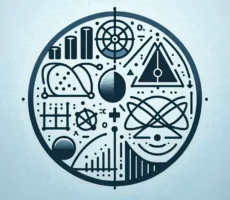Switching gears from engineering to medicine is not a path for the faint-hearted, but it’s where passion outshines pragmatism, and dreams get a pulse. It’s like rebuilding a bridge while crossing it—challenging, but far from impossible.
In this blog post, you’ll find a roadmap tailored to help ambitious minds bridge the gap between two distinct yet scientifically aligned worlds.
Quick Takeaways:
- Leverage your engineering problem-solving skills and systematic approach for diagnosing and treating patients.
- Prepare for an academic shift with necessary pre-med courses and excel at the MCAT to secure your spot in medical school.
- Seek mentorship from professionals who’ve successfully transitioned from engineering to medicine and join networks like the Society of Physician Engineers.
Why Are You Considering a Switch to Medicine?
Have you ever found yourself daydreaming about a career that isn’t just about nuts and bolts, but also about hearts and lives? You’re not alone. Engineers like you are increasingly pivoting to medicine, drawn by a myriad of motivations. Let’s face it, the allure of direct patient care can be compelling, especially if you crave a human connection that extends beyond the screen or lab. It’s a chance to make a tangible difference, one patient at a time.
But maybe it’s more than that. Perhaps for you, it’s about fulfilling a dream you’ve shelved to pursue the practicalities of engineering. Or, could it be the itch for new challenges, the yearning to immerse yourself in the constantly evolving field of healthcare? Take a moment to look within and pinpoint exactly what drives you towards medicine. Your reasons are the backbone of your journey – they’ll keep you going when the going gets tough.
What Skills Can You Transfer from Engineering to Medicine?
As an engineer, you may wonder if your hard-earned skills are transferable to the medical field. Spoiler alert: they absolutely are. You’ve been trained to tackle problems with precision and inventiveness, which is just what the doctor ordered. In medicine, your analytical prowess will come in handy diagnosing complex cases and synthesizing patient information.
Think about it: your systematic approach to solving engineering puzzles is a boon for managing patient care. Case in point, successfully debugging a software issue isn’t unlike piecing together symptoms to arrive at a diagnosis. Additionally, your strong math and science foundation lays the groundwork for understanding physiological and pharmacological concepts in medicine.
Let’s not overlook your project management experience. In a healthcare setting, being adept at juggling various tasks while keeping an eye on the finer details is crucial. This can be especially beneficial when managing a patient’s treatment plan or coordinating care among various healthcare professionals.
How Do You Get from Here to There: Education and Credentials?
Transitioning to a new field can feel like setting off on a grand expedition without a map, but fear not, the path from engineering to medicine, while arduous, is well-charted. Initially, you might need to circle back to academia to complete any medical school prerequisites you may have missed during your engineering studies, such as biology or organic chemistry.
Once you’ve got the prerequisites under your belt, the next stop is the MCAT – the entrance exam for medical school. Following a strong MCAT performance, you’ll embark on the voyage through medical school itself, which typically takes four years. It’s a mix of intensive classes, clinical rotations, and at times, grueling hours of study. But think of it as forging a new alloy; you’re combining your engineering background with a new medical expertise.
For the engineers with a strong academic track but missing those crucial science credits, post-baccalaureate programs or bridge programs can be a godsend. These are tailored to career changers and often offer the necessary courses and sometimes even facilitate medical school admissions. For example, some post-bac programs have linkage agreements with medical schools, which could streamline your transition if you meet certain criteria.
Remember, this isn’t the end of your transition story, only the beginning. Your engineering mind, coupled with a newfound medical acumen, is sure to set you apart in a field that values diversity of thought and experience. Keep pushing forward, because the insights you bring may very well reshape how we perceive and practice medicine tomorrow.
What Challenges Will You Face and How Can You Overcome Them?
Switching gears from engineering to medicine is no small feat. Firstly, let’s talk heart. Emotionally, you’re leaving a world you’re familiar with and diving headfirst into an ocean of human anatomy, diseases, and patient care. The transition from a technical to a clinical mindset can feel like learning a new language while building the plane as you’re flying it.
Intellectually , the challenge is just as daunting. While engineers tend to focus on systems and problem-solving, medicine requires a deeply personal touch and a high tolerance for uncertainty. You’ll find that clinical thinking involves weighing risks and benefits in situations where the outcome is not always clear-cut.
So how do you brace for impact?
- Embrace a beginner’s mindset: Accept that you’re on a new journey of learning. Keep your curiosity alive and remember that every doctor was once a rookie.
- Ground yourself in the familiar: Your engineering mindset isn’t obsolete—apply your problem-solving skills to clinical scenarios.
- Form study groups: Learning with peers can provide emotional support and enhance understanding through discussion.
- Stay organized: Prioritize your tasks and create a structured schedule, much like you would approach an engineering project.
Remember, it’s perfectly natural to feel overwhelmed at times. When it feels like you’re in over your head, catch your breath by breaking down complex ideas into smaller, manageable parts. And don’t forget to take care of yourself; exercise, hobbies, and social activities are crucial for balance in the demanding life of a medical student.
How Will Your Engineering Background Benefit Your Medical Career?
As an engineering graduate, you’ll bring a dash of unconventional flair to the table. Your background equips you with an analytical mindset, a knack for problem-solving, and a penchant for innovation. But it’s not just the thought process. Engineers have an edge in understanding and utilizing medical technology, which is a big win in a field that’s increasingly dependent on sophisticated tech.
Think about it – who better to grasp the mechanics of an MRI machine or the intricacies of biomedical devices than someone who’s tinkered with systems and circuits? And let’s not forget data analysis – making sense of patient data and statistics can greatly improve healthcare delivery, and that’s right up an engineer’s alley.
Real-life examples abound. Take Dr. Robert S. Langer for instance, an engineer who shifted to biomedical research and has pioneered novel drug delivery systems. His work beautifully illustrates the fusion of engineering principles with medical innovation.
Key takeaways?
- Lean on your strengths: Employ your analytical abilities to make precise diagnoses and create treatment plans.
- Innovate: Use your engineering background to improve healthcare technologies or workflows.
- Research: Engineers are no strangers to research, which is a massive part of medical advancements.
Who Can Help You Make This Leap?
Who better to guide you than those who’ve blazed this very trail? Finding mentors or advisors who have an engineering background can offer priceless insights and advice tailored to your experience. They can act as a compass, helping you navigate the otherwise disorienting maze of medical school and beyond.
Tap into alumni networks of your engineering school or professional engineering associations – they often house hidden gems who have made the switch. Get involved in online communities such as the Society of Physician Engineers, where you can seek guidance and share experiences.
Don’t underestimate the power of a coffee chat! Reach out to these professionals via LinkedIn or through medical conferences. If you can, find a mentor who will invest in your success, champion your journey, and give you the good, the bad, and the ugly of their own experiences.
Networking can be your golden ticket. Beyond gaining insights, it’s also about building relationships. When done authentically, these connections can lead to research opportunities, clinical experience, and even job offers down the line.
Bottom line ? Sidle up next to those who’ve walked the path and learn from their victories and stumbles. Their wisdom can be the wind beneath your wings, propelling you toward a successful career in medicine with an engineering twist.







